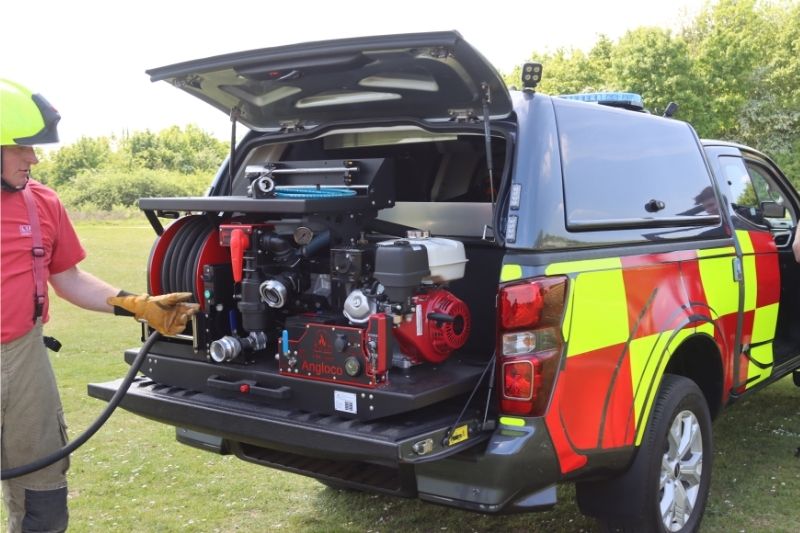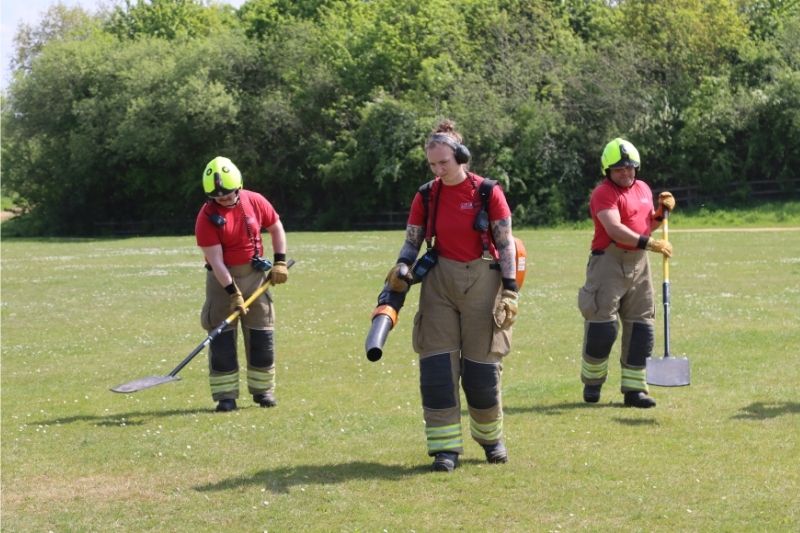In summer 2025 we're continuing the pilot of four wildfire response vehicles. They’ve been assigned the call sign Whiskey Foxtrot 1 to 4.
Why we need them
Extreme weather conditions mean there’s a growing threat of grass fires and wildfires in London.
Wildfire response vehicles can reach wildfires quickly. They also provide closer support for firefighters on terrain that our larger and heavier appliances can’t reach.

What they offer
These vehicles are purpose-built Isuzu D-Max King Cabs.
They’re equipped with:
- 4x4 off-road capabilities.
- capacity to carry 475 litres of water.
- technology that allows firefighters to pump water while driving.
- wildfire beaters.
- a backpack blower and ear defenders.
- misting lance technology.
- 30m of 19mm hose reel.

Backpack blowers
Backpack blowers work just like leaf blowers. They allow firefighters to push flames back into already burnt areas. This is a tactic that provides a faster, more efficient attack on wildfires.
Wildfire beaters
A wildfire beater is made of a long handle with a flat piece of rubber at the end. They’re used to beat the flames, which deprives them of oxygen and cools them down.
Misting lance technology
Misting lances look similar to jet washers. They’re used for creating firebreaks. They produce a fine spray at high pressure, using a minimal amount of water. They can increase the humidity of dense vegetation, preventing fire spread through bushes and shrubs.
Misting lances can also be used for applying water to deep seated fires. This is done by driving the lance into the ground, where it can dampen fires and cool fire gases beneath the surface.
How we use wildfire vehicles
These vehicles are strategically positioned at:
- Biggin Hill
- Enfield
- Feltham
- Walthamstow
They are each crewed by one firefighter who is a specially trained off-road driver. Once at the scene of the fire the equipment carried in the vehicle is used by trained crews already in attendance.
The vehicles are sent, or 'mobilised', to grass fires with four or more fire engines present, but can also be requested by Incident Commanders. Control Commanders can also decide to send a wildfire response vehicle to an incident based on the information they receive from initial 999 calls.
Take a look at our video below to find out more about these impressive vehicles.
A closer look at our wildfire response vehicles.